Newly published research led by the University of Michigan reveals that despite the Roundtable on Sustainable Palm Oil (RSPO) certification system being influential, its effectiveness in reducing deforestation has so far for decades, been an illusion. The study used remote sensing to analyse deforestation caused by oil palm plantations in Guatemala, a major palm oil supplier to global markets.
The results of the paper show that these plantations were responsible for 28% of the region’s deforestation, and RSPO-certified plantations did not significantly reduce deforestation. The study links this deforestation to the supply chains of major brands: Pepsico, Mondelēz International, and Grupo Bimbo, who rely on RSPO-certified palm oil supplies.
As a consumer you can make a difference every time you shop, use your wallet as a weapon and #Boycottpalmoil #Boycott4Wildlife
@UMich #research finds “sustainable” #RSPO #palmoil sourced in #Guatemala is NOT sustainable, yet it is sold to consumers as such, despite links to #deforestation. Fight back with your wallet #Boycottpalmoil #Boycottpalmoil
Tweet
So-called “sustainable” #palmoil certified by #RSPO originating in #Guatemala is strongly connected to #deforestation and #ecocide finds @UMich study. Help #rainforests and fight #extinction #Boycottpalmoil #Boycott4Wildlife
Tweet
This media release entitled “Palm oil plantations and deforestation in Guatemala: Certifying products as ‘sustainable’ is no panacea” was issued by The University of Michigan on July 20, 2023. The study on which it is based is available to read here
Cheap, versatile and easy to grow, palm oil is the world’s most consumed vegetable oil and is found in roughly half of all packaged supermarket products, from bread and margarine to shampoo and toothpaste.
But producing palm oil has caused deforestation and biodiversity loss across Southeast Asia and elsewhere, including Central America. Efforts to curtail the damage have largely focused on voluntary environmental certification programs that label qualifying palm-oil sources as “sustainable.”
However, those certification programs have been criticised by environmental groups as greenwashing tools that enable multinational corporations to claim fully “sustainable” palm oil, while continuing to sell products that fall far short of the deforestation-free goal.
Findings from a new University of Michigan-led study, published online in the Journal of Environmental Management, support some of the critics’ claims—and go much further.
“Environmental certification does not effectively mitigate deforestation risk, and firms cannot rely on—or be allowed to rely on—certification to achieve deforestation-free supply chains,”
Study senior author Joshua Newell, a geographer and a professor at the School for Environment and Sustainability.

Key findings
- RSPO-certified plantations, comprising 63% of the total cultivated area assessed, did not produce a statistically significant reduction in deforestation and appear to be ineffective at reducing encroachment into ecologically sensitive areas in Guatemala.
- Despite their RSPO membership and pledges to source palm oil from certified plantations, several multinational corporations predominantly sourced palm oil from noncertified mills in Guatemala.
- Even RSPO-certified palm oil plantations and mills are contributing to deforestation in Guatemala.







The U-M case study focuses on Guatemala, which is projected to become the world’s third-largest palm-oil producer by 2030 after Indonesia and Malaysia, and an influential environmental certification system called the Roundtable on Sustainable Palm Oil, or RSPO.
“Our results indicate the supply chains of transnational conglomerates drove deforestation and ecological encroachment in Guatemala to support U.S. palm oil consumption,” said study lead author Calli VanderWilde, a doctoral student at the U-M School for Environment and Sustainability who did the work for her dissertation.
“In addition, we found no evidence to suggest that RSPO certification effectively protects against deforestation or ecological encroachment. Given that oil palm expansion is predicted to increase significantly in the coming years, this pattern is likely to continue without changes to governance, both institutionally and to supply chains.”
The U-M-led research team tracked palm oil sourced from former forestland, and other ecologically critical areas in Guatemala, by several large transnational conglomerates that sell food products made from the oil in the United States. The corporations are members of the Roundtable on Sustainable Palm Oil and have RSPO commitments and sourcing policies in place to ensure the sustainability of their palm oil supplies.
The study used satellite imagery and machine learning to quantify deforestation attributable to palm oil plantation expansion in Guatemala over a decade, 2009-2019. In addition, the researchers used shipment records and other data sources to reconstruct corporate supply chains and to link transnational conglomerates to palm oil-driven deforestation.
The study found that:
- Guatemalan palm oil plantations expanded an estimated 215,785 acres during the study period, with 28% of the new cropland replacing forests.
- As of 2019, more than 60% of the palm oil plantations in the study area were in Key Biodiversity Areas. KBAs are sites that contribute significantly to the global persistence of biodiversity in terrestrial, freshwater and marine ecosystems.
- RSPO-certified plantations, comprising 63% of the total cultivated area assessed, did not produce a statistically significant reduction in deforestation and appear to be ineffective at reducing encroachment into ecologically sensitive areas in Guatemala.
- Despite their RSPO membership and pledges to source palm oil from certified plantations, several multinational corporations predominantly sourced palm oil from noncertified mills in Guatemala.
- Even RSPO-certified palm oil plantations and mills are contributing to deforestation in Guatemala.
Guatemala is divided into 22 administrative districts called departamentos. The study focused on a 20,850-square-mile region in the three departamentos (Alta Verapaz, Izabal and the lower half of Petén) responsible for 75% of Guatemala’s palm oil production.
The researchers used high-resolution satellite imagery to assess land-use change between 2009 and 2019, and a machine learning algorithm enabled them to distinguish between forests and monoculture plantations.
They found that oil palm expansion is encroaching on, and causing deforestation in, seven Key Biodiversity Areas and 23 protected areas.
Among the areas impacted, the Key Biodiversity Areas with the largest palm extent include the Río La Pasión, Caribe de Guatemala and Sierra de las Minas Biosphere Reserve. The Río La Pasión is an especially rich area for endemic fish species, making it an important area for conservation.
Oil palm encroachment on the Sierra de las Minas Biosphere Reserve threatens animals such as the quetzal, Guatemala’s national bird. Known as the jewel of Guatemala, the reserve is an irreplaceable gene bank for tropical reforestation and agroforestry and supports the livelihoods of more than 400,000 people.
The researchers identified 119 RSPO-certified plantations and 82 non-RSPO plantations. During the study period, 9% of the RSPO-certified plantation expansion resulted in, or contributed to, forest loss, compared to 25% of the noncertified plantation expansion.
“Environmental certification does not effectively mitigate deforestation risk, and firms cannot rely on—or be allowed to rely on—certification to achieve deforestation-free supply chains,”
Study senior author Joshua Newell, a geographer and a professor at the School for Environment and Sustainability.
By reconstructing the supply chains of the three conglomerates, the researchers revealed connections to palm oil-driven deforestation. Of the 60,810 acres of palm oil-driven deforestation across the study period, more than 99% was traced to plantations supplying palm and palm-kernel oil to mills used by two multinational conglomerates. Seventy-two percent of the palm and palm-kernel oil was linked to the subset of plantations supplying a third corporation’s mills.
“Palm oil has attracted attention for its ties to widespread forest and biodiversity loss across Southeast Asia. However, the literature has paid minimal attention to newer spaces of production and issues of corporate supply-chain traceability,” VanderWilde said.
“As it stands, environmental certification makes unjustified claims of ‘sustainability’ and fails to serve as a reliable tool for fulfilling emerging zero-deforestation requirements.”
The authors recommend reforms to RSPO policies and practices, robust corporate tracking of supply chains, and the strengthening of forest governance in Guatemala.
In addition to VanderWilde and Newell, authors of the study are Dimitrios Gounaridis of the U-M School for Environment and Sustainability and Benjamin Goldstein of McGill University. Funding for the study was provided by U-M’s Rackham Predoctoral Fellowship Program.
Calli P. VanderWilde, Joshua P. Newell, Dimitrios Gounaridis, Benjamin P. Goldstein,
Deforestation, certification, and transnational palm oil supply chains: Linking Guatemala to global consumer markets, Journal of Environmental Management,
Volume 344, 2023. https://doi.org/10.1016/j.jenvman.2023.118505
Deforestation, certification, and transnational palm oil supply chains: Linking Guatemala to global consumer markets
Abstract
Although causal links between tropical deforestation and palm oil are well established, linking this land use change to where the palm oil is actually consumed remains a distinct challenge and research gap. Supply chains are notoriously difficult to track back to their origin (i.e., the ‘first-mile’). This poses a conundrum for corporations and governments alike as they commit to deforestation-free sourcing and turn to instruments like certification to increase supply chain transparency and sustainability. The Roundtable on Sustainable Palm Oil (RSPO) offers the most influential certification system in the sector, but whether it actually reduces deforestation is still unclear. This study used remote sensing and spatial analysis to assess the deforestation (2009–2019) caused by oil palm plantation expansion in Guatemala, a major palm oil source for international consumer markets. Our results reveal that plantations are responsible for 28% of deforestation in the region and that more than 60% of these plantations encroach on Key Biodiversity Areas. RSPO-certified plantations, comprising 63% of the total cultivated area assessed, did not produce a statistically significant reduction in deforestation. Using trade statistics, the study linked this deforestation to the palm oil supply chains of three transnational conglomerates – Pepsico, Mondelēz International, and Grupo Bimbo – all of whom rely on RSPO-certified supplies. Addressing this deforestation and supply chain sustainability challenge hinges on three measures: 1) reform of RSPO policies and practices; 2) robust corporate tracking of supply chains; and 3) strengthening forest governance in Guatemala. This study offers a replicable methodology for a wide-range of investigations that seek to understand the transnational linkages between environmental change (e.g. deforestation) and consumption.
This media release entitled “Palm oil plantations and deforestation in Guatemala: Certifying products as ‘sustainable’ is no panacea” was issued by The University of Michigan on July 20, 2023. The study on which it is based is available to read here
ENDS
Read more about deforestation and greenwashing associated with “sustainable” palm oil
Contribute in five ways
1. Join the #Boycott4Wildlife on social media and subscribe to stay in the loop: Share posts from this website to your own network on Twitter, Mastadon, Instagram, Facebook and Youtube using the hashtags #Boycottpalmoil #Boycott4Wildlife.
2. Contribute stories: Academics, conservationists, scientists, indigenous rights advocates and animal rights advocates working to expose the corruption of the palm oil industry or to save animals can contribute stories to the website.
3. Supermarket sleuthing: Next time you’re in the supermarket, take photos of products containing palm oil. Share these to social media along with the hashtags to call out the greenwashing and ecocide of the brands who use palm oil. You can also take photos of palm oil free products and congratulate brands when they go palm oil free.
4. Take to the streets: Get in touch with Palm Oil Detectives to find out more.
5. Donate: Make a one-off or monthly donation to Palm Oil Detectives as a way of saying thank you and to help pay for ongoing running costs of the website and social media campaigns. Donate here

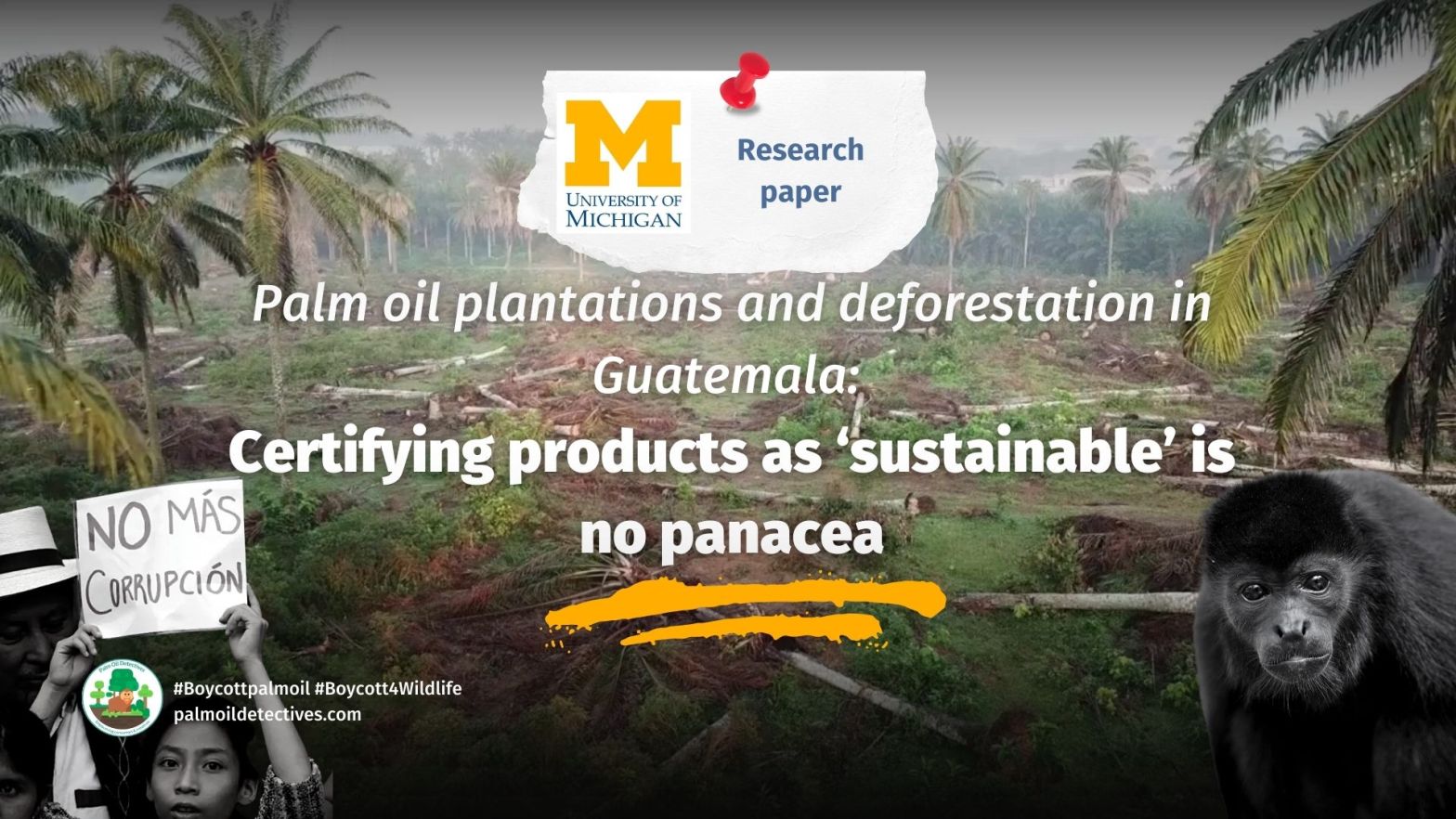
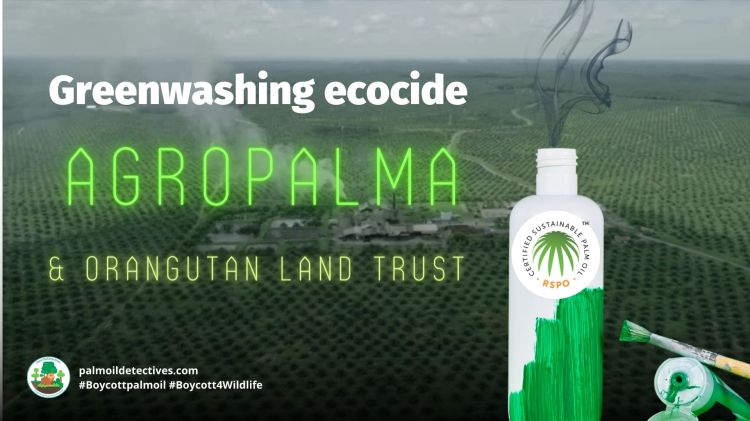


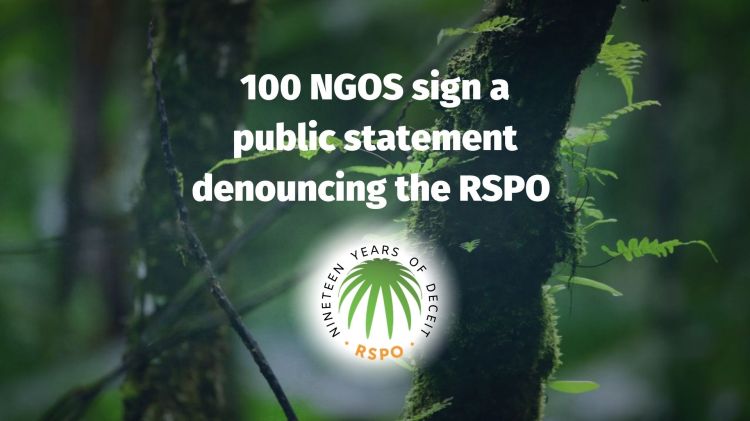
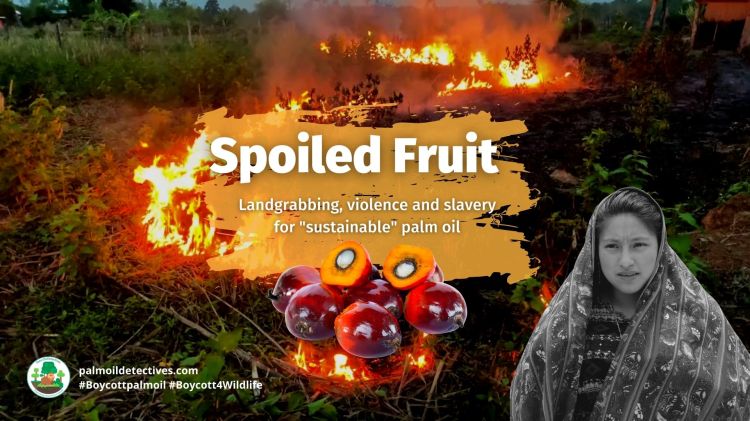
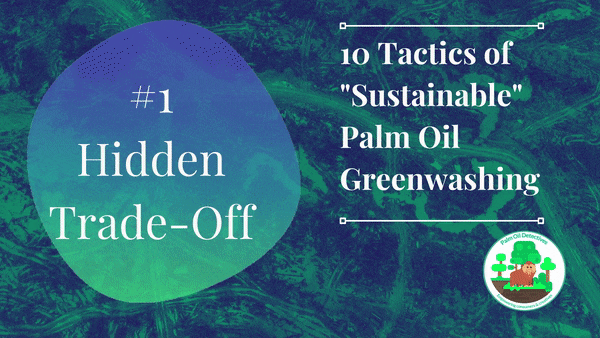

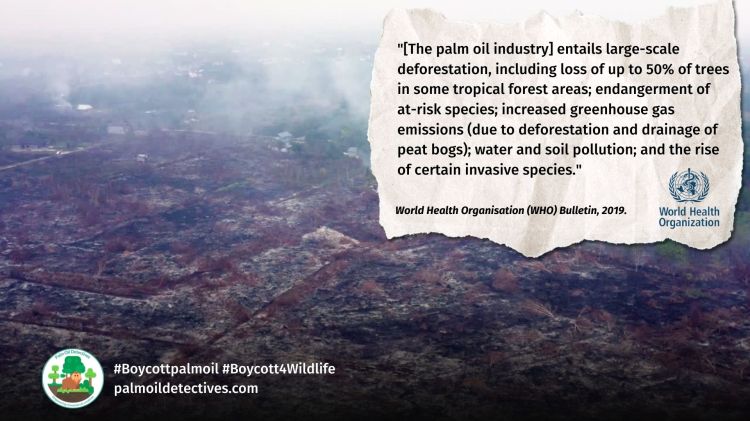
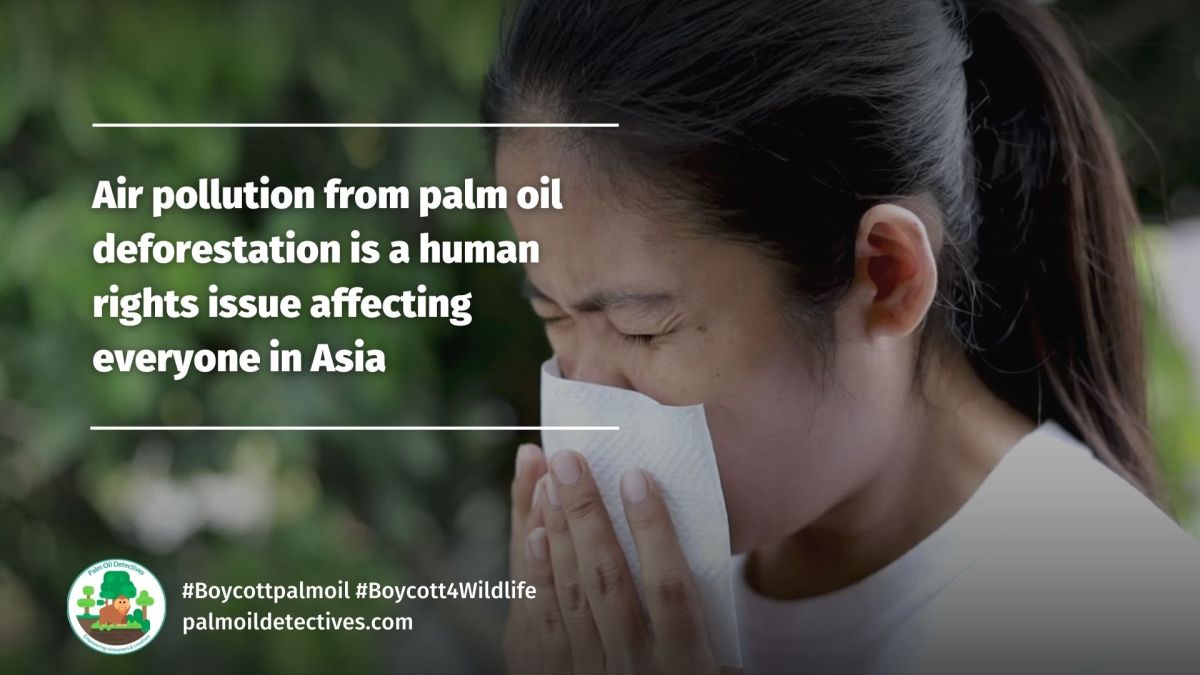
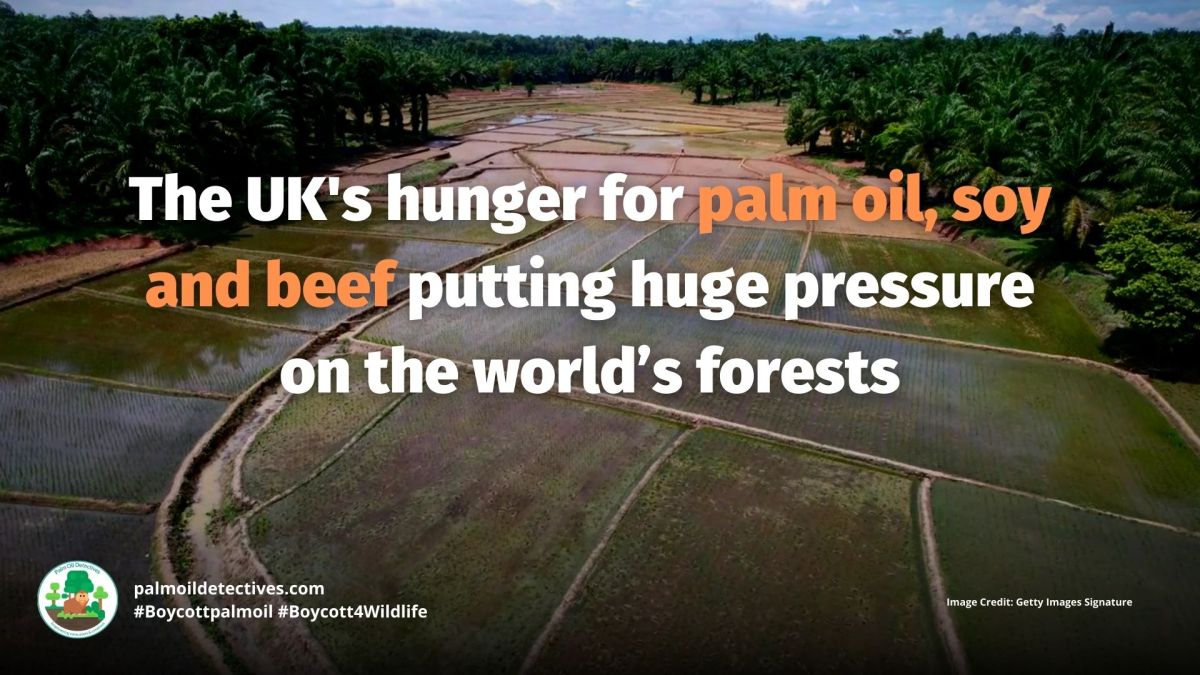

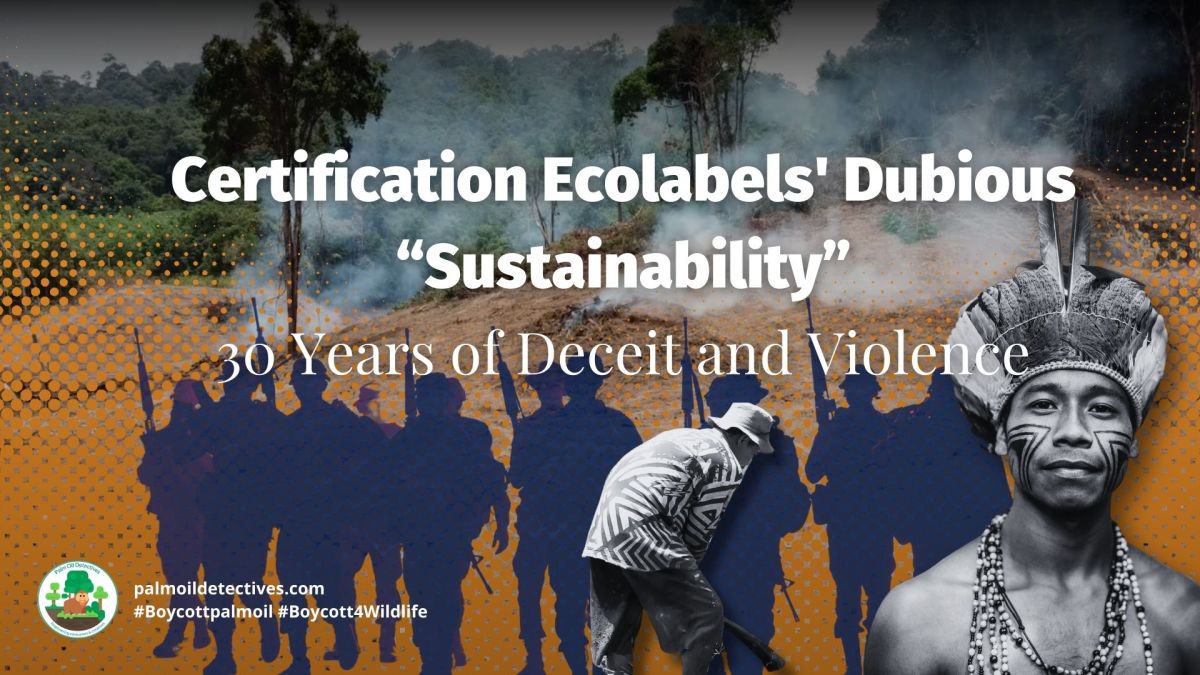












One thought on “Palm oil deforestation in Guatemala: Certifying products as ‘sustainable’ is no panacea: University of Michigan”